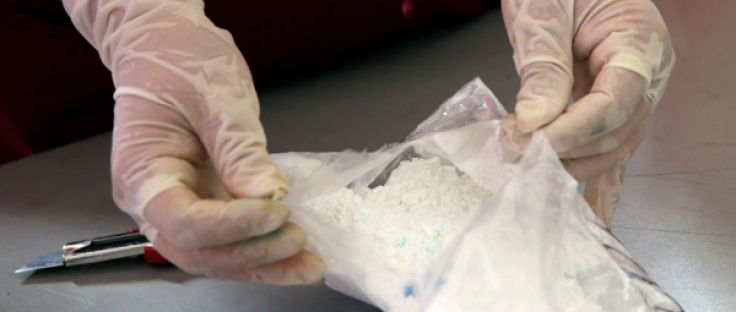Crack Epidemic Inspired 'Snowfall': Drug Addiction Among African-Americans In 80s Los Angeles

A new TV series, “Snowfall”, that revisits the origin of the crack epidemic in Los Angeles in the 1980s debuted Wednesday on Fx. Curiously, John Singleton, the director of the show, was the first ever African-American nominated for the best director Academy Award category in 1991 for his film “Boyz N the Hood.”
Born in Los Angeles, Singleton has dealt with various socio-economic issues in his movies —“Poetic Justice,” “Higher Learning,” “Rose Wood” — among many others, during his career spanning more than three decades. In his latest TV series, the acclaimed director portrays the drug trade in LA that left an indelible impact on the African-American community.
Crack cocaine is the street name for cocaine processed to make a rock crystal. This form of cocaine is also called "freebase cocaine," according to the National Institute on Drug Abuse. The crystal when heated creates vapor that can be smoked. The term “crack” derives from the crackling sound made during the process of transforming cocaine to crack cocaine.
Read: ‘Medical’ Marijuana: 10 Health Benefits That Legitimize Legalization
A research paper published by the National Forum Journal of Counselling and Addiction – The Impact of Crack Cocaine on Black America – sheds light on the crack epidemic. “Crack cocaine’s introduction into major cities in the United States was gradual, first it appeared in large cities like Miami and Los Angeles in the early 1980’s and appeared later in cities like Chicago (Curtis, 2003). In summary, crack cocaine has negatively impacted the African-American community since its introduction in the 1980’s,” the researchers observed in the paper.
According to the study, people from the African-American community were more vulnerable to the epidemic. They were targeted with excessive mandatory prison sentencing for the possession of crack cocaine. Sexual risk taking behavior and violence were among the adverse effects on the community.
Another research published by the US National Library of Medicine National Institutes of Health also underlined the struggles faced by numerous African-American families during the cocaine era. “Numerous African-American families have struggled for generations with persistent poverty, especially in the inner city. These conditions were further strained during the 1980s and 1990s by the widespread use of crack cocaine. For many, crack use became an obsession, dominated their lives, and superseded family responsibilities,” according to the paper, The Severely-Distressed African American Family in the Crack Era: Empowerment is not Enough.
Read: Have Scientists Discovered A Mind Control Drug?
“Snowfall's" 10-episode first season follows the story of an African-American youth, Franklin Saint – played by Damson Idris – who becomes a cocaine peddler. Actor-producer Amin Joseph plays the role of Franklin's uncle, Jerome Saint. As the story unfolds in the coming episodes, Idris would be seen mired in the dark alleys of addiction.
Some see hard times, others see opportunity. #SnowfallFX premieres TONIGHT at 10p. pic.twitter.com/OqYLG4tUQn
— Snowfall (@SnowfallFX) July 5, 2017
Like Franklin, many young African-Americans were attracted to street gangs in the 80s due to increased returns associated with drug-dealing, according to a study published by the University of Iowa in 2005. The epidemic was so devastating to the Black community primarily because of prostitution and gang violence, the report said.
© Copyright IBTimes 2024. All rights reserved.











